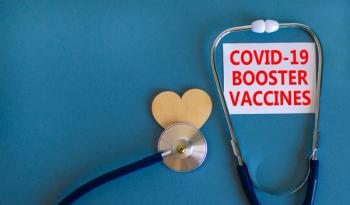
Long COVID Increases Risk of Being Out of Office, Experiencing Material Hardships
Long COVID’s effect on people’s basic, daily needs can affect their recovery and long-term health and well-being.
Adults still living with long COVID and its symptoms have a greater risk of being out of work and experiencing material hardships such as food and housing insecurities.
Long COVID’s effect on people’s basic, daily needs can affect their recovery and long-term health and well-being.
In the latest round of the
Published this July, results from the survey revealed that 58% of respondents reported a prior COVID-19 infection, while a smaller number of respondents thought they had COVID but did not receive a formal diagnosis. Of those who suspected or confirmed to have a COVID-19 diagnosis, 18% reported they were currently experiencing long COVID symptoms that had lasted four weeks or more.
Majority of adults with long COVID were Hispanic/Latinx (26%), female (66%), and reported having a disability (38%) or other diagnosed chronic conditions (67%), though it’s unclear whether these conditions or disabilities predated COVID-19, the survey said.
Data shared 10% of adults with long COVID reported they stopped working because of their symptoms, including 5% who were not working at the time of the survey, and an additional 5% who reduced their work hours.
On the other hand, 24% of participants with long COVID reported they limited activities outside of work like social activities, errands, or chores at home to continue working.
Authors of the study suggest the need to prioritize work over other activities could reflect a lack of workplace flexibility. For example, 59% of adults with long COVID who were working for an employer reported having access to paid sick leave at their jobs, compared with 68% of all workers.
As for the relationship between long COVID patients and their material hardships they experienced while out of work, the survey looked at patient challenges within the past 12 months of the December 2022 survey date.
Data shared over 40% of those with long COVID reported food insecurity, with about 25% reporting very low food security. In addition, nearly 20% of patients with long COVID symptoms reported difficulties paying their rent or mortgage, and almost 20% had trouble paying utility bills.
The survey stated examining material hardship among people with long COVID is more limited but suggests adults with the diagnosis have greater difficulty meeting basic needs, reporting higher rates of food insufficiency, housing insecurity and trouble paying for usual household expenses.
Authors recommend policy-makers address material hardships to reduce cases of long COVID, provide support for those who have or will develop long COVID, and meet the basic needs of people in the long-run.
Policy suggestions include:
- Expand access to safety-net assistance and increase benefits in programs serving people with disabilities.
- Provide universal paid leave.
- Make workplaces more accommodating with flexible schedules and increase benefits.
Authors claim the importance that policymakers address social determinants of health and bolster the safety net for those who become sick to address the emergence of long COVID.
Newsletter
Get the latest industry news, event updates, and more from Managed healthcare Executive.

























